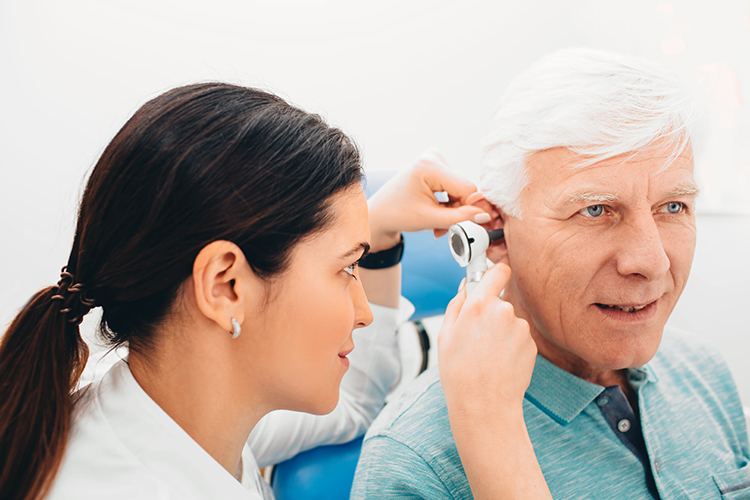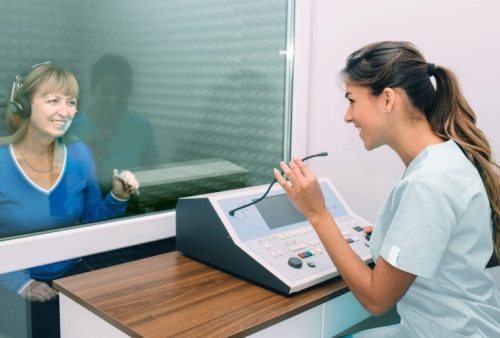
Role of the audiologist and of the audioprosthetist
When it comes to hearing, two fields of study are often confused: audiology and audioprosthetics.
If you have questions about your hearing health or that of a loved one, it’s important to make the distinction in order to consult the right professional.
Role of the Audiologist
The audiologist works with people who have a hearing disorder (deafness, tinnitus, sound intolerance, etc.) or a balance disorder. When consulting this professional, they can assess your auditory function and vestibular system, determine a treatment plan and provide specialized rehabilitation services. You must consult an audiologist for a hearing aid recommendation.
An audiologist is to hearing what an optometrist is to vision.
To practice their profession in Quebec, audiologists must complete a graduate program (master’s degree) in audiology and be a member of the “Ordre des orthophonistes et audiologistes du Québec”.
Audiologists work in hospitals, private clinics, rehabilitation centers and schools, among other settings.
Role of the Audioprosthetist
The audioprosthetist, on the other hand, specializes in hearing aids. They handle the sale, fitting, adjustment and replacement of hearing aids. You can also consult an audioprosthetist for custom earplugs molded to the shape of your ears (e.g. for noise protection, sleep, swimming).
A parallel can be drawn between the audioprosthetist in regards to hearing and the optician in regards to vision.
This professional must hold a diploma of college studies (DCS) in audioprosthetics and a licence from the “Ordre des audioprothésistes du Québec”. Audioprosthetists usually work in private clinics, but can also be employed by hearing aid manufacturers as an instructor or representative.
Two hearing health professionals
Audiologists and Audioprosthetists work collaboratively to improve the hearing health and quality of life of people of all ages. Their aim is to promote their patients’ autonomy, integration, well-being and safety in everyday life.
They provide interventions tailored to individual needs, as well as ensure monitoring and follow-up of those who consult them.
BY Marilyne Trepanier, Audiologist, at the Polyclinique de l’Oreille
Make an appointment today!



